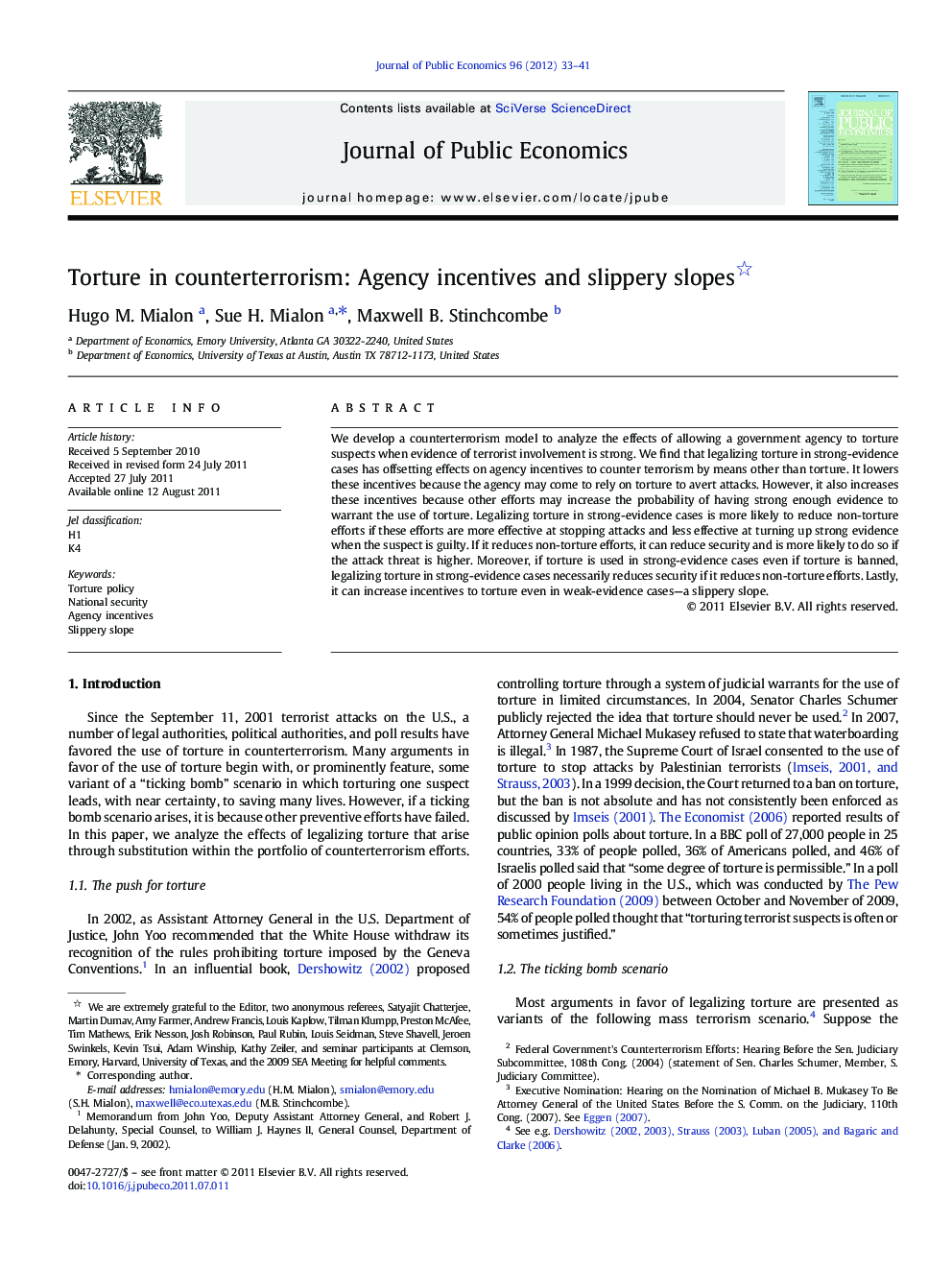| Article ID | Journal | Published Year | Pages | File Type |
|---|---|---|---|---|
| 969248 | Journal of Public Economics | 2012 | 9 Pages |
We develop a counterterrorism model to analyze the effects of allowing a government agency to torture suspects when evidence of terrorist involvement is strong. We find that legalizing torture in strong-evidence cases has offsetting effects on agency incentives to counter terrorism by means other than torture. It lowers these incentives because the agency may come to rely on torture to avert attacks. However, it also increases these incentives because other efforts may increase the probability of having strong enough evidence to warrant the use of torture. Legalizing torture in strong-evidence cases is more likely to reduce non-torture efforts if these efforts are more effective at stopping attacks and less effective at turning up strong evidence when the suspect is guilty. If it reduces non-torture efforts, it can reduce security and is more likely to do so if the attack threat is higher. Moreover, if torture is used in strong-evidence cases even if torture is banned, legalizing torture in strong-evidence cases necessarily reduces security if it reduces non-torture efforts. Lastly, it can increase incentives to torture even in weak-evidence cases—a slippery slope.
► We develop a model of counterterrorism. ► We analyze the effects of legalizing torture in counterterrorism. ► Torture in counterterrorism can lower non-torture counterterrorism efforts. ► If torture lowers non-torture efforts, it lowers safety if threat levels are high.
